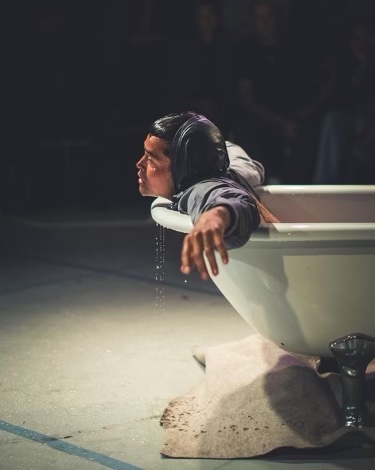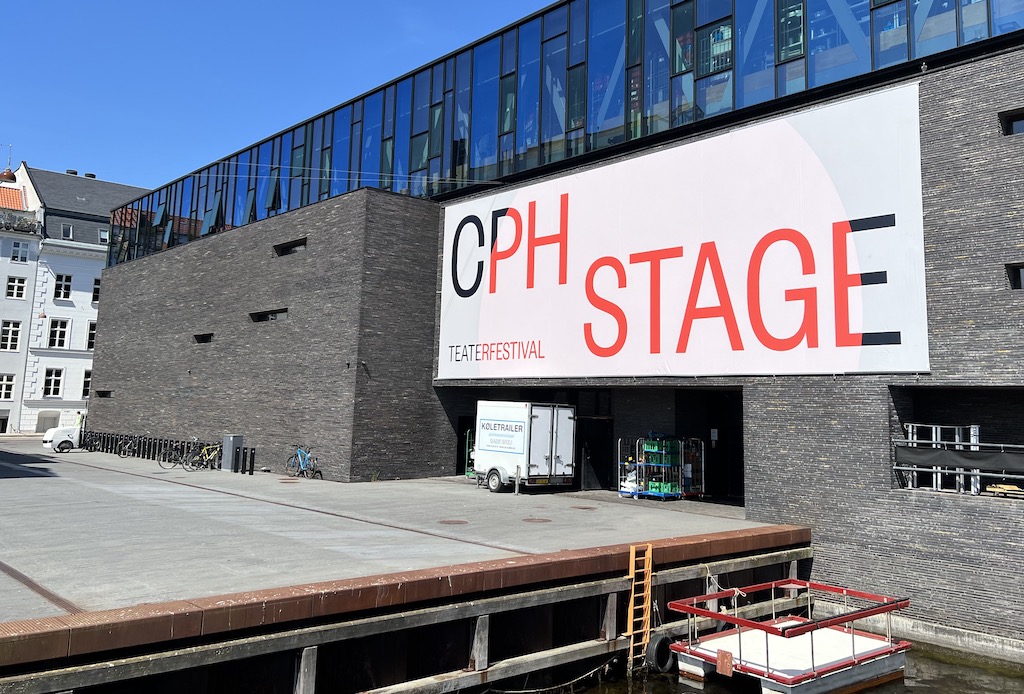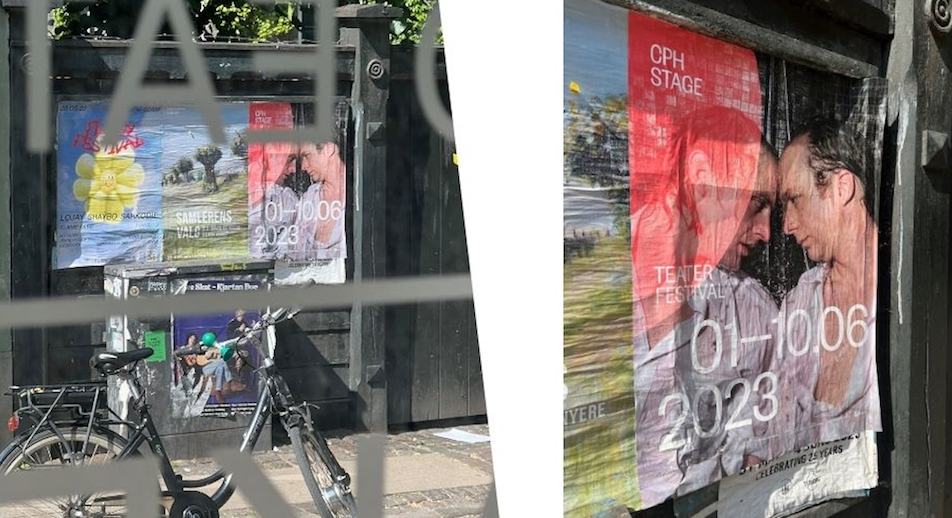Staring at his reflection in the studio’s mirror thinking back on the past 20 years of his life, Mark Philip finally felt like he could create, experiment and dance without the pressure of an approaching deadline. His newfound freedom in his movements filled up each corner of the empty studio space — almost as if his steps were no longer bound by his body’s anatomy.
Improvising and observing himself in the silence of the studio, Philip’s “therapy session” soon grew into “PILGRIM,” his debut piece at CPH Stage’s International Days as a solo-choreographer.
Why It’s Newsworthy: CPH Stage, a theater festival highlighting both Danish and international artists, celebrates its tenth anniversary this year. International festivals play an important role in improving people’s awareness, appreciation, and acceptance of other cultures when visiting other countries, according to a recent ResearchGate study.Culture Cultivates Choreography
When Uppercut Dance Theater, where Philip is an artistic director, choreographer and dancer, took an eight-month break last year, he finally had time to reflect on what he already experienced within his lifetime. This time of meditation brought up questions he had about his cultural and dancer identity, which he chose to explore in the best way he knew how — through improvised movement.
“Because for 20 years, we had to produce every year. Every September, there was a premiere to do. Then, we would have to go on the Danish World Tour,” Philip said. “It’s nice to not just push everyday but also have time to reflect, and that’s why “PILGRIM” came.”
“PILGRIM” explains Philip’s journey from where he started to where he is today.
He explained that his mother, who immigrated to Denmark from the Philippines, dreamed of raising her children “living the Danish dream,” so after meeting Philip’s Danish father and starting a family, she “erased the Filipino culture.”
“I’m looking like a Filipino Asian kind of type, but I’m so Danish inside my body, and I love it so much,” Philip said. “The nice thing about Denmark is that you are allowed to break traditions. You are allowed to say things that you believe in loud. There is a nice space for you here to do whatever you want to do.”
Searching for “this missing piece” of his cultural identity when creating “PILGRIM,” Philip explained that he improvised with new ideas, new qualities and new metaphors — like a bathtub, which he sees as “cleansing.”
“I’m coming through my childhood, to becoming who I am today,” Philip said. “I picked from the 20 years, put it in the bathtub, and then everything is just growing out of that.”

‘Spirit of Exploring’ at CPH Stage’s International Days
The pieces selected for CPH Stage’s International Days this year share a “persistence of exploring,” Karen Toftegaard, the Head of International Programming and Production for the festival, explained.
“You can feel this openness in a lot of the works… this openness to allowing yourself to simply explore and not necessarily try to fit into some kind of format,” Toftegaard said.
Though CPH Stage first took place in 2013, it wasn’t until 2017 that the festival began hosting international days as well, which was actually developed by Toftegaard. She explained that the international days of the festival, which include Denmark, Greenland and the Faroe Islands this year, are important because they create “a meeting platform for like minded people and people who are engaged within performing arts and working internationally.”
“It’s also a showcase within the National Theatre Festival framing,” Toftegaard said. “It’s a window from Denmark to the outer world, and you can see what’s going on in Denmark as an international program for venues, festivals or residencies.”

The CPH Stage’s International Jury handpicks what performances will be showcased during the international days. “PILGRIM,” an exploration and reflection of Philip’s life, was one of the selected works this year to represent Denmark.
“There is something about… being open to exploring some questions without necessarily giving away all the answers because you don’t necessarily know them,” Toftegaard said. “You allow this open space to happen. Then, you go in there, and you can reflect and just sense. I think that would be a common thing for all of them.”
Government’s Influence on Danish Performing Arts
CPH Stage, and the Danish dance scene in general, is “very much affected by the fact that it is supported by the government,” Toftegaard explained.
The Danish Arts Foundation was founded in 1964 and later divided into more than 60 funding programs with respective committees to “fund the production and promotion” of the arts in Denmark, including dance.
“It’s a… social democratic idea of wanting culture and arts to be accessible to everybody — no matter how much you may have in your bank account or your background and such, which is very much part of our identity,” David Cornelius Price, one of the current Performing Arts Committee Members, said.
The Danish Arts Foundation allows independent or emerging artists, institutions, schools, organizations, and companies, like Uppercut Dance Theater, to apply for funding for projects, supplies or performances. Alongside the foundation being a “necessity” in supporting Danish and some international artists, it also plays a key role in outreach for the arts in the community through supporting platforms, like CPH Stage’s International Days.
“I think it’s about 24% of our total budget (of the performing arts committee) actually goes to platforms, like Copenhagen Stage,” Price said. “Copenhagen Stage has always received funding from the Danish Arts Foundation.”
Alongside receiving this support from the foundation, CPH Stage also has received annual funding from the Ministry of Culture since the beginning of 2022 — as it is now a “more established institution,” Toftegaard indicated.
Connecting Through Cultures
Though Philip is unsure of what the future holds for “PILGRIM” or if it will be toured in the U.S., he explained that he hopes to “connect” with viewers at CPH Stage and inspire them to “find themselves” and “just be themselves more instead of living in old traditions that are burnt out.”
“I think you can find yourself in small situations, awkwardness, lovingness, hatefulness, the different surfaces, and the different qualities,” Philip said. “I think people can find their own small stories not all the way through but glimpses.”
Philip centered this piece around his exploration of answering the question of what it meant to him to be a pilgrim in his own life — a traveler, seeker, and discoverer. He believes that people “all over the world” would be able to resonate to his journey in “PILGRIM” because “we’re not that different.”
Haley Roberson is a fourth year majoring in journalism and dance.









Show Comments (0)